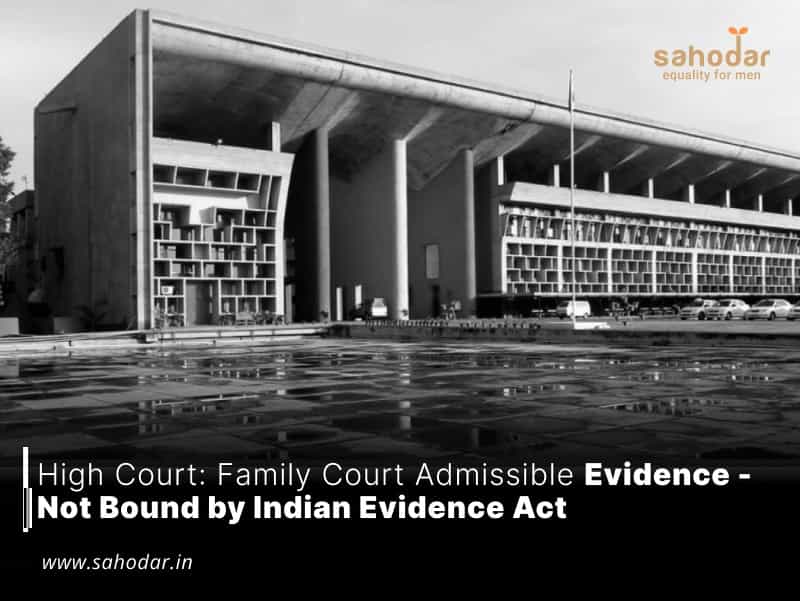The Punjab & Haryana High Court has clarified that a Family Court possesses the authority to admit any material as evidence for efficient adjudication, irrespective of its compliance with the Indian Evidence Act. A division bench comprising Justice Sudhir Singh and Justice Sumeet Goel asserted this stance.
“A Family Court is well within its powers to take into evidence any material, which in the judicial discretion of such Family Court, may be essential for effectively adjudicating a lis before it whether or not such material fulfills the requirements of Indian Evidence Act, 1872. However, while exercising such discretion, the Family Court ought to bear in mind that receiving of such material by way of evidence does not violate the basic principles of our legal system.”
The Punjab & Haryana High Court clarified that Order VIII, Rule 1-A CPC of 1908 is a directive, not mandatory, especially in Family Court Act, 1984 proceedings. The court emphasized a Family Court’s discretion under sub-rule (3) of Order VIII, Rule 1-A of CPC, allowing evidence admission without formal leave application. The court made these observations during a divorce petition appeal where a husband objected to his wife’s affidavit of evidence.
The court considered Sections 10(1) and 10(3) of the Family Court Act, stating that while the CPC is applicable, it’s not compulsory, allowing the Family Court to establish its own procedure. The court referred to precedents, Chief Justice of A.P. vs. L.V.A. Dikshitulu (1979) and National Insurance Co. Ltd. vs. Laxmi Narain Dhut (2007), highlighting that CPC doesn’t fully apply to 1984 Act proceedings.
Section 14 of the 1984 Act, according to the court, alleviates the rigors of the Indian Evidence Act, empowering Family Courts to admit any material for effective adjudication. Citing Shivanand Damodar Shanbhag vs. Sujata Shivanand Shanbhag (2013), the court endorsed a broad decision approach, avoiding technicalities of the Evidence Act.
The court summarized principles, stating the non-obstante clause in Section 10(3) gives supremacy to the Family Court Act. CPC isn’t binding, allowing the Family Court to devise its procedure in line with jurisprudential principles. The Family Court can admit material at its discretion, irrespective of Evidence Act requirements.
Regarding Order VIII, Rule 1-A CPC, the court affirmed its directive nature, allowing the Family Court to admit material without formal leave application but requiring a reasoned order. The court upheld the Family Court’s order in the divorce petition, noting that the husband wasn’t prejudiced. Consequently, the appeal was dismissed.

